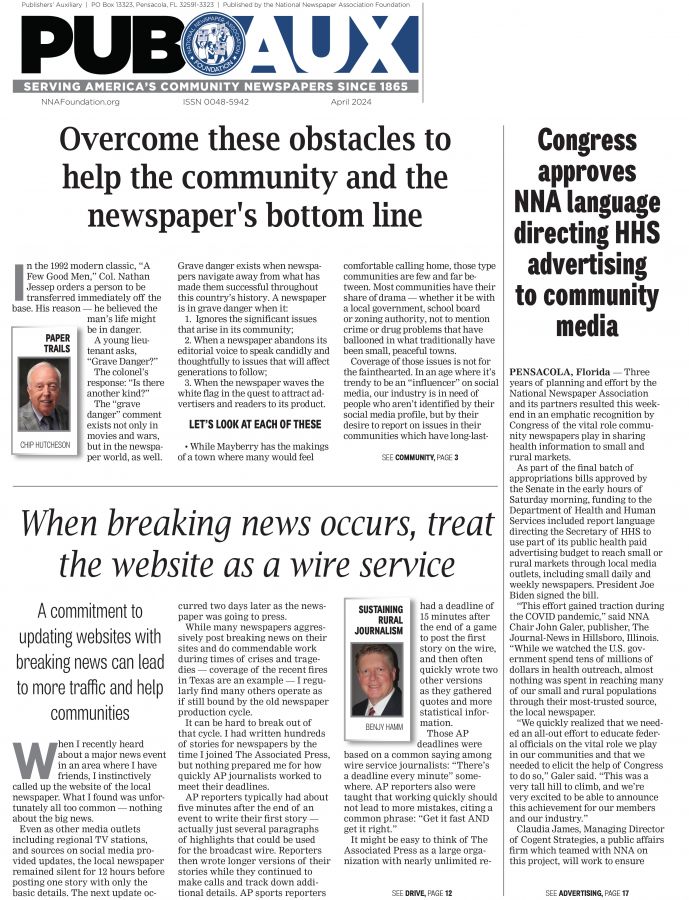With the stroke of a pen, Arizona governor changes everything
Mar 6, 2014
By Charles C. Haynes
Inside the First Amendment — March 6, 2014
Arizona Governor Jan Brewer’s veto last week of SB 1062 — a controversial “religious freedom” bill few Americans read and even fewer understood — may well have been a defining moment in the history of gay rights in America.
Post SB 1062, it will be politically difficult, if not impossible, to pass laws that are perceived to allow discrimination on the basis of sexual orientation — even to protect religion, even in red states with Tea Party favored governors.
Brewer’s veto — urged by business leaders, both of the state’s Republican Senators, and even several legislators who voted for the bill in the first place — is symbolic of the new zeitgeist in America: Like it or not, it’s no longer economically, socially or politically feasible to be seen as a state hostile to lesbian, gay, bi-sexual and transgender people.
This is huge.
It now appears that discrimination against LGBT people is fast approaching the same level of unacceptability as racial discrimination for a growing majority of Americans.
What SB 1062 supporters called “religious freedom,” opponents successfully re-framed as “discrimination” — drawing heavily on the language and imagery of the struggle for racial equality.
Would Arizonians, for example, allow businesses to refuse service to inter-racial couples on religious grounds? If not, what is the rationale for treating discrimination against LGBT people differently in places of public accommodation?
A much-re-tweeted tweet from radio producer Chris Lavoie captured the winning message linking past civil rights struggles to the present battle: “Dear Arizona, In case you missed it, we’ve already had this conversation. You don’t get to decide who sits at the lunch counter. Love, America”
Game over.
What was lost in the din of charge and counter-charge was the actual content of SB 1062. Contrary to most media coverage, this was not a “turn-away-the-gays” bill that would have allowed business owners to refuse service to LGBT people. Instead, the law would have amended the existing Arizona Religious Freedom Restoration Act to cover religious freedom claims by business owners.
As nine legal scholars explained in a public letter to Gov. Brewer, nothing in the amendment would say who wins in cases when a business owner asserts a religious freedom claim:
“The person invoking RFRA would still have to prove that he had a sincere religious belief and that state or local government was imposing a substantial burden on his exercise of that religious belief. And the government, or the person on the other side of the lawsuit, could still show that compliance with the law was necessary to serve a compelling government interest.”
In other words, such “free exercise” claims would likely be rare (“substantial burden” is a high bar) and would often fail in the face of a compelling state interest.
If the media and public failed to grasp the nuances of the proposed law, proponents of SB 1062 have only themselves to blame. Recall that the law was proposed in the first place as a response to cases (in other states) where business owners providing wedding services turned away same-sex couples on religious grounds. But rhetoric from many of the bill’s supporters about the dangers of the “homosexual agenda” drowned out legitimate arguments about protecting religious conscience in limited circumstances.
Ironically, discrimination against LGBT people is already possible in much of Arizona since only a few cities in the state have anti-discrimination laws that include sexual orientation.
If Arizona legislators want to garner public support for expanding protections for religious conscience, they would be wise to start by passing legislation prohibiting discrimination on the basis of sexual orientation. Then they might gain the credibility and trust needed for a narrowly tailored law exempting religious small business owners from serving same-sex weddings when it violates their conscience.
That’s unlikely to happen now. The bitter SB 1062 debate has poisoned the well for any effort to seek common ground that could protect LGBT people from discrimination while accommodating religious convictions in limited circumstances.
In her veto message, Gov. Brewer said: “Religious liberty is a core American and Arizona value; so is non-discrimination.”
The sad lesson of the battle over SB 1062 is that in the current climate of name-calling and fear mongering, few people on either side are willing to work together to uphold both.
Charles C. Haynes is director of the Religious Freedom Center of the Newseum Institute, 555 Pennsylvania Ave., N.W., Washington, DC 20001. Web: religiousfreedomeducation.org Email: chaynes@newseum.org.







